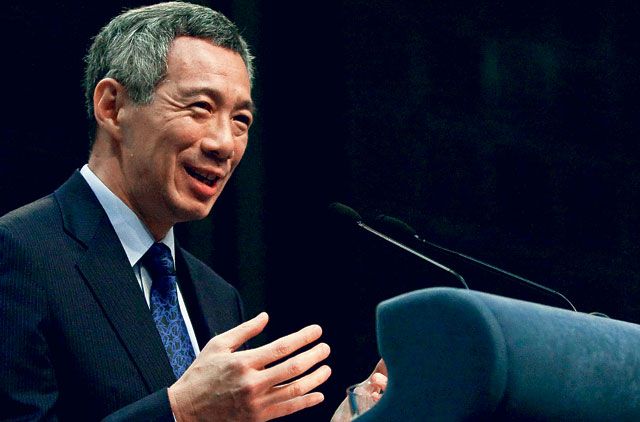Singapore : Singapore's economy is improving after a "volatile" year that saw it shrink for the first time since 2001, Prime Minister Lee Hsien Loong said.
Gross domestic product fell 2.1 per cent last year, Lee, 57, said in his New Year message yesterday. That's in line with the government estimate for a contraction of 2 per cent to 2.5 per cent. The trade ministry forecasts the economy will expand 3 per cent to 5 per cent in 2010, an estimate reiterated by Lee.
"Our economy is growing again, and has recovered much of the ground since the recession began last year," Lee said. "We continue to track the short-term economic trends closely, but we must focus beyond the crisis to secure Singapore's long-term position."
Singapore climbed out of its worst recession since independence in 1965 last year as Asia led a rebound from the global economic slump. A "sluggish recovery" in overseas demand for goods made by companies such as Stats Chippac Ltd may moderate growth prospects in the coming months, the government said in November.
The economy grew 3.5 per cent in the fourth quarter from a year earlier, Lee said. That compares with the 3.8 per cent median forecast of nine economists surveyed by Bloomberg News.
GDP probably contracted an annualised 2.1 per cent in the fourth quarter from the previous three months, after climbing 14.2 per cent from July to September, according to the median estimate of eight economists surveyed by Bloomberg. The trade ministry will release the economic data at 8am on January 4.
The global economy will experience "modest" growth this year even as "the worst is behind us," Lee said in a commentary written for Bloomberg News.
"Worldwide, economies have stabilised," Lee said yesterday. "The US, Japan and Europe are starting to grow again, although problems remain and no one expects an exuberant boom," while Asia is expected to resume its "rapid" growth, he said.
The nation's economy shrank in the 12 months through March as the worst global recession since the Second World War curbed exports, prompted tourists to stay away and damped consumer spending.













